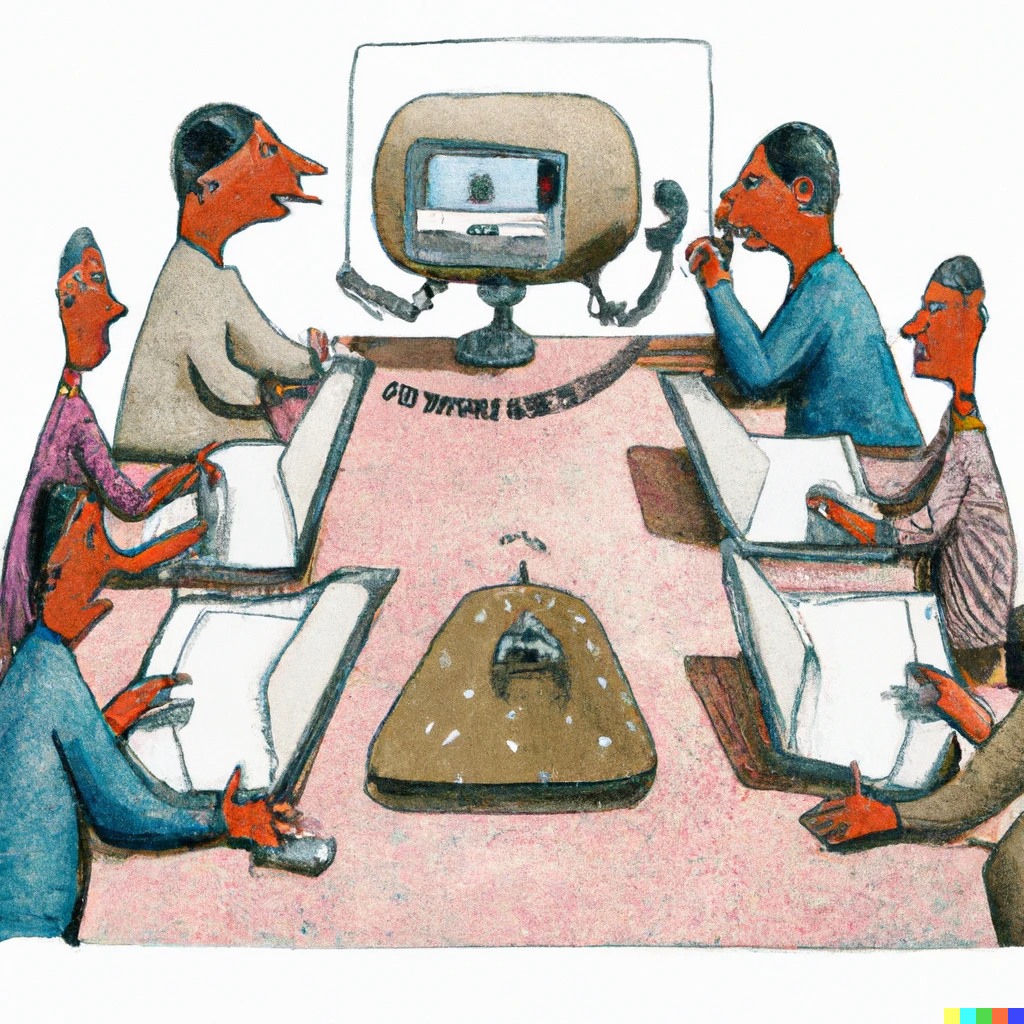In the age of remote work and text communication, a new danger lurks more present, yet undetected, than ever: misusing acronyms and very domain-specific jargon.
Acronyms are words or names created from parts or first letters of a longer expression or name, such as PIN (personal identification number), RIP (rest in peace), UA (user acquisition). Jargon/lingo are those words or expressions you would only expect a specialist to use/understand in a determined context.
There’s this OG (original), biblical story (that one might remember from religious education), where everyone once spoke the same language, and culture flourished. They started building a tower to reach heaven, AKA(also known as), the Tower of Babel. And they built up floor after floor, the building soared through the skies and became more and more wondrous. God then became worried that humans had become too OP (overpowered), so what better way to nerf them than to make them speak different languages? The patch worked and the builders got very confused and couldn’t finish the tower.
This story is a humorous introduction with some typical gaming acronyms thrown in the middle. But, religious overtones aside, in my interpretation this story highlights the importance of communication, and how the more important communication becomes with the more complex the tasks involved.
While acronyms when well used, make communication more concise, they open up the path for more misunderstanding. The main problems with using acronyms very liberally are:
- Unfamiliar acronyms;
- The same acronym has completely different meanings in different contexts. Eg. POC can stand for “Person of color”, “Point of Contact”, or “Proof of Concept”.
How misuse of acronyms is driving a wedge between you and your team (and making you sound like a moron)?
When having F2F(face-to-face) communication, it’s easier to spot if someone didn’t understand the message.
If you work cross-functionally (ie. you often work with people from different departments and/or different job titles), a good chunk of your job description is communication. In order to communicate with a diverse plethora of individuals you have to speak the same lingo (both language and a common jargon). This includes making sure that everyone is familiar with any set of acronyms (and domain-specific terms), that are commonly used.
Not building common ground
Having worked in games in cross-functional functions for many years, I’ve collected a set of typical examples of acronyms that cause a lot of miscommunication, but none is so nefarious as ARPU. The worst part of this acronym is that most people will know it, will know that it stands for “Average Revenue per User”, but will assume that they share a common clear definition. For example, a game producer, Leah, might be interested in knowing the average revenue for all players over the past month.
Then, performance marketing manager Guy is interested in the “Average Revenue per User” over the past month.
Leah and Guy go to a general meeting for everyone that works with the game, and Leah presents a slide where ARPU is up 5% MoM (month-over-month), while Guy communicated to the whole forum that ARPU is down 12% MoM (month-over-month). Gloria, the Studio Head, gets confused and spends the rest of the meeting asking clarifying questions. How did this happen?

Guy and the performance marketing team, use ARPU as a synonym for LTV (lifetime value). When they asked for their metric, they want to know how a cohort of players that were acquired in the past months is performing compared to the players that came into the game during the previous month. In this scenario, some of his campaigns underperformed and the players that started playing this month are spending less than a similar group of players, that started playing during the previous month.
Meanwhile, Leah was interested in knowing an overall blended distribution of average revenue for all players. In her case, during the past month, a new end-of-game chapter was introduced which made older players that had been playing for many months spend more in-game, therefore ARPU using her definition was up.
ARPU deserves a full chapter of its own.
Not assuming new team members or people from other backgrounds are familiar with the jargon
When doing mentorship, I encounter the same pattern over and over, especially among more inexperienced professionals, but also repeatedly among new team members, or people without experience in the same domain:
They will sometimes refrain from asking clarifying questions when faced with an acronym they’re not familiar with. I feel flattered that people come to me with these questions because that makes me believe they trust me enough to help them without an apparent “loss of face”. But what does this tell about the people that used the acronym without realizing that their communication failed?
How to improve your acronym usage?
Pay special attention to new team members. Make sure newcomers are onboarded into the team slang. Try to not do this from a position of power, I’ve met people who would blatantly quiz me regarding the meaning of words or acronyms, which is an annoying experience. Instead, it’s much more productive to become someone open and empathetic. There will be things that other people might be able to help you with as well.
Hang out / try to meet and talk to people from a different background than yourself. One of the most humbling groups to talk to are teenage girls, who seem to be the ultimate “language disruptors” according to some linguistic studies https://www.smithsonianmag.com/smart-news/teenage-girls-have-been-revolutionizing-language-16th-century-180956216/, and a reassuring proof that sooner or later everyone has trouble understanding domain-specific expressions.
Periodically, re-align the definitions.
Handle more sensitive/important communication with care. Some things are better suited for an in-person chat or a video call. Sometimes there will be an unexpected lack of feedback or clarifying questions! Make sure you’re understood. You’re part-responsible for your message to come across.
In bigger and/or more diverse groups err on the side of using more detail for the explanation. The probability that someone will raise their hand when they didn’t understand something, lowers with more people in a meeting.
Be the change you want to see in the world. When you don’t understand something, ask clarifying questions. If you want to check other articles on how to become a better communicator feel free to check Reflections on data-driven teams, biases, and credibility.
If we understand each other better, no task is too complex, no mountain is too big to move. So, with a new year approaching comes one more wish for global peace and understanding. Empathy goes a long way in creating a kinder, more beautiful world.
I wish you a great 2023.

